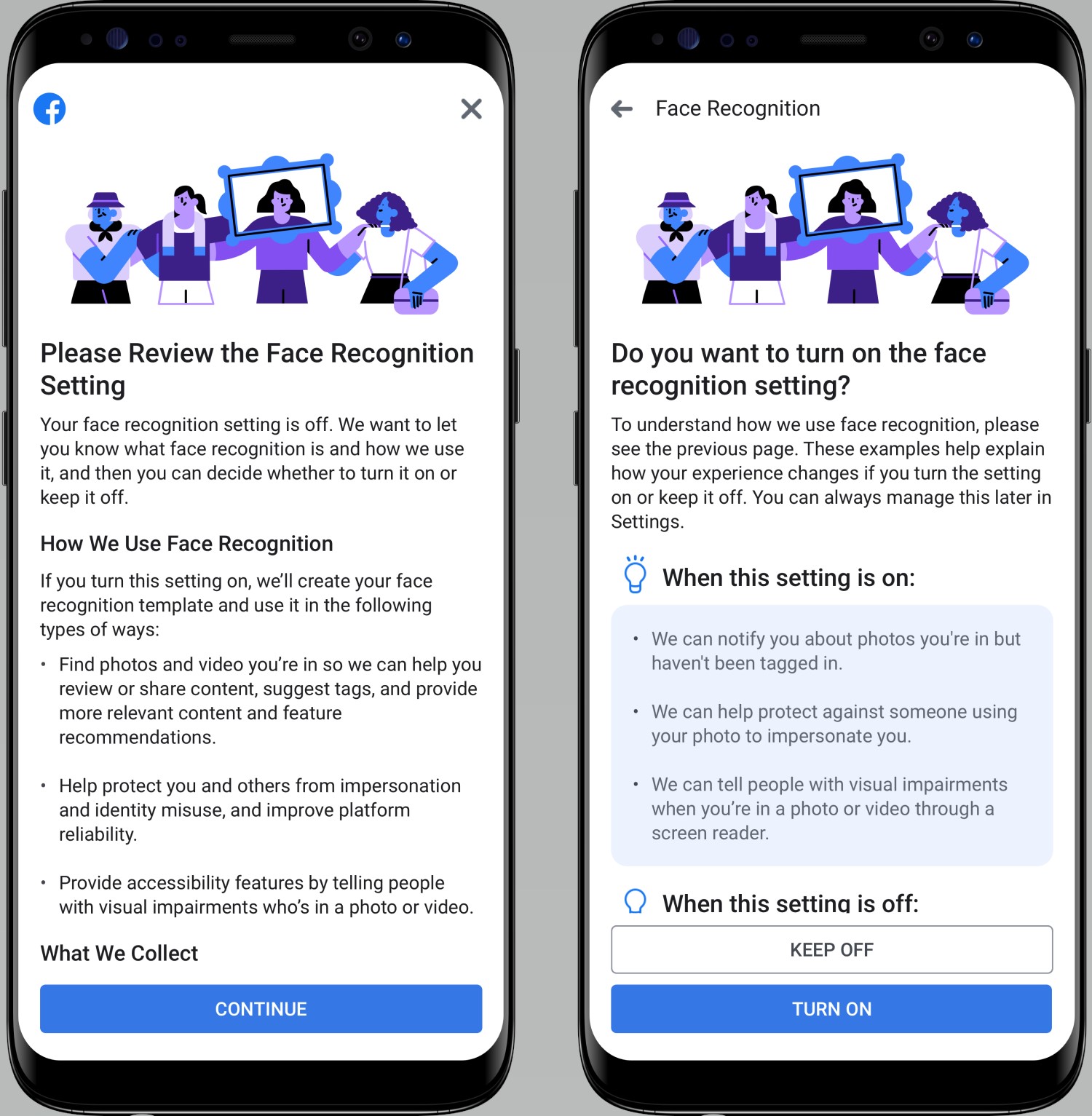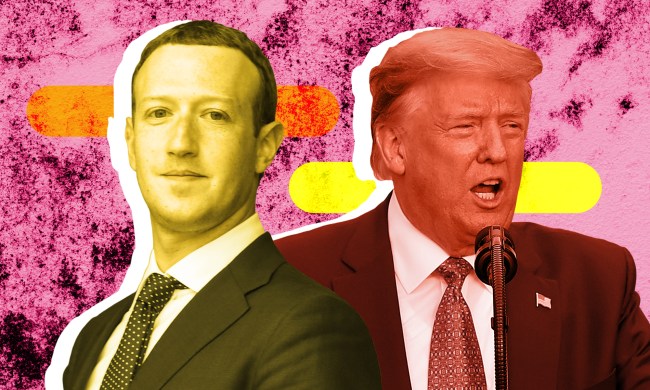Facebook announced on Tuesday that it will stop using facial recognition by default on your photos and tagging suggestions.
In a blog post published Tuesday, Facebook said that new users who sign up and those users who had the tag suggestion setting turned on will get a notice about face recognition with transparency on how the platform uses the technology. Users will be able to easily opt-in or opt-out of these settings starting Tuesday.
Those who do not have the face recognition on will not appear in suggested tags or the Photo Review feature.

“Our face recognition setting lets you manage not only whether Facebook uses face recognition technology on photos of you in order to suggest tags; it provides an easy on or off switch for a broader set of uses of face recognition, such as helping you protect your identity on Facebook,” Srinivas Narayanan, Facebook AI’s Applied Research Lead, wrote on Tuesday.
The updates come after Facebook was hit with a $5 billion penalty as part of a settlement with the Federal Trade Commission (FTC) in July, partially over the facial recognition feature — the FTC said Facebook misrepresented users’ ability to control how their photos were used for facial recognition.
Aside from the $5 billion fine, the FTC ordered Facebook to “provide clear and conspicuous notice of its use of facial recognition technology, and obtain affirmative express user consent prior to any use that materially exceeds its prior disclosures to users,” according to an FTC press release.
“We’ve continued to engage with privacy experts, academics, regulators and people on Facebook about how we use face recognition and the options you have to control it,” Narayanan wrote on Tuesday.
“Facebook’s face recognition technology still does not recognize you to strangers. We don’t share your face recognition information with third parties. We also don’t sell our technology,” Narayanan continued.
Facial recognition software is nothing new, and many companies have begun to use it in a variety of ways. Amazon’s facial recognition software can even detect emotions on people’s faces, including fear.
Digital Trends reached out to Facebook for additional details on the changes made to the face recognition technology, but we haven’t heard back.



